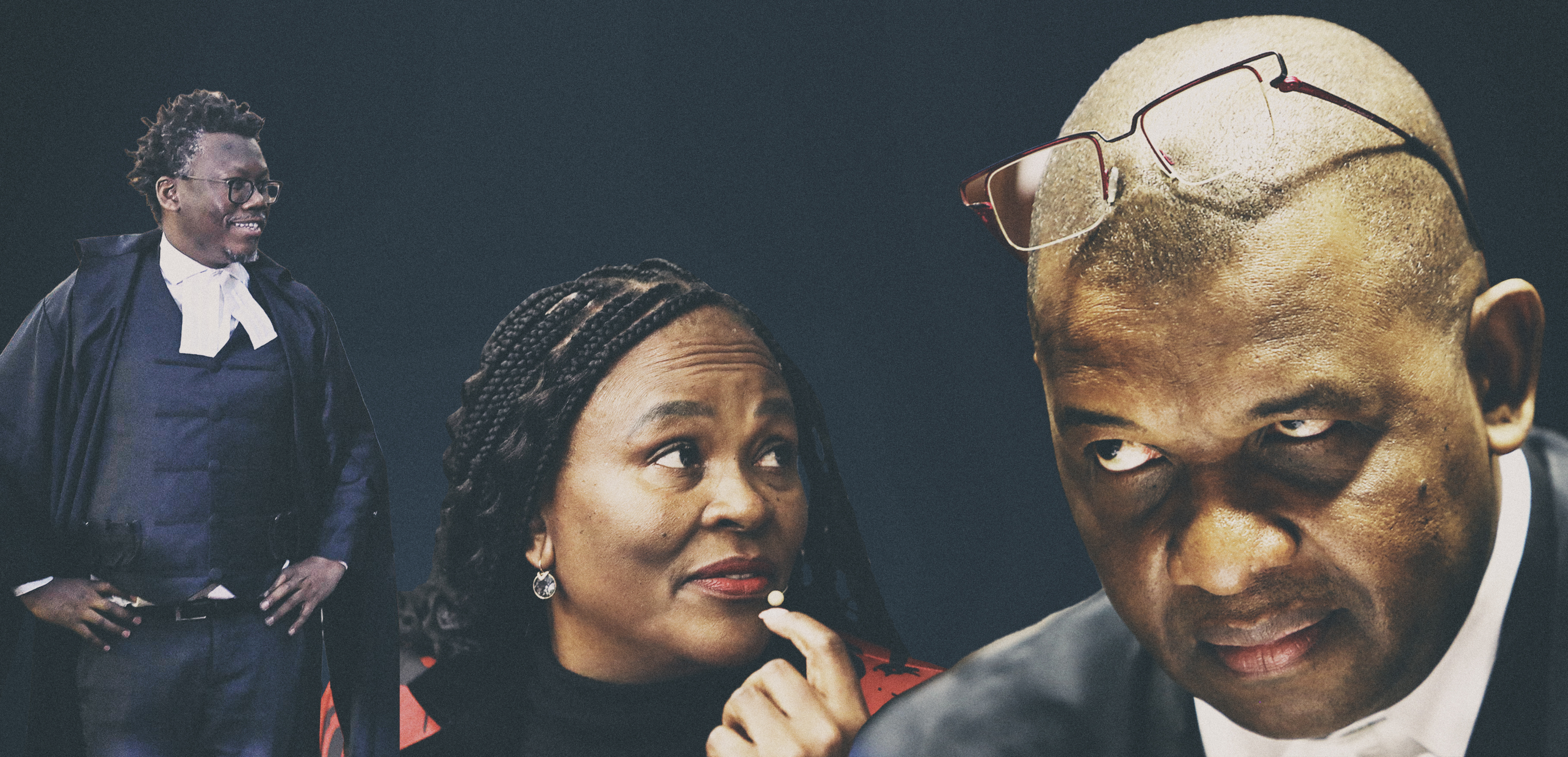Granting impeached former Public Protector Busisiwe Mkhwebane a gratuity payment estimated at R10-million would be tantamount to rewarding “constitutional delinquency”.
This was part of the argument by advocate Tembeka Ngcukaitobi SC on Tuesday at the North Gauteng High Court in Pretoria. Ngcukaitobi represents the Office of the Public Protector, which is the first respondent in the matter
Mkhwebane is challenging her former employer’s refusal to pay her a gratuity, which it has paid to all the previous Public Protectors upon their departure.
Ngcukaitobi argued that Mkhwebane was the only Public Protector to be impeached for misconduct and incompetence and was not in the same position as other Public Protectors.
Giving her the payment would set a bad precedent, said Ngcukaitobi.
“What you have is a reward for constitutional delinquency. And this, I’m afraid, my Lord, is the big elephant in the room that this case, really what it is about, is asking the judge to be party to a reward for constitutional delinquency.”
Ngcukaitobi argued that Mkhwebane did not meet the requirements for a gratuity payment because she had not left office as required by the Public Protector Act, but was removed on grounds of misconduct.
Read more: Long road to impeachment: Mkhwebane is guilty as charged – here’s a breakdown of the damning findings
He cited four categories under the Public Protector Act and conditions of service in which a gratuity payment is made when a Public Protector leaves office.
The first category refers to a Public Protector leaving office upon completion of their seven-year term. The second refers to incapacity or ill-health where the National Assembly allows the Public Protector to leave office before the end of their term. The third refers to resignation for various reasons. The last is through death.
Mkhwebane, however, did not leave on any such terms. She was removed through a vote by Parliament on the recommendation of the lengthy and costly multiparty Section 194 inquiry, which found her guilty of incompetence and misconduct and recommended her removal from office, weeks before she was due to complete her term.
Read more: Historic impeachment of Mkhwebane highlights impact of politicking in crucial public accountability appointments
“Which other Public Protector in the history of the Office of the Public Protector has ever had these findings made against them?” argued Ngcukaitobi
He maintained that the previous Public Protectors received a gratuity because they left office after serving the full seven-year term. “They were also deemed, on discretion, suitable for such payment. There is no unfair or irrational differentiation.”
‘No legal right to gratuity’
On Monday, Mkhwebane’s legal counsel, advocate Dali Mpofu told the court that the decision to deny Mkhwebane her gratuity payment was “arbitrary, cruel and degrading”. It was a “double punishment” and went against the values of ubuntu.
Read more: Mkhwebane’s impeachment is irrelevant to her R10m gratuity claim — Dali Mpofu
Ngcukaitobi rejected this.
“There is no provision in the Constitution that deals with — never mind establishes a legal right to — a gratuity on the part of a Public Protector. Accordingly, there is no legal right to a gratuity under the provisions of the Constitution,” he said.
On Mpofu referring to the conditions of service document, which does not explicitly state that a Public Protector who has been removed from office should not be paid a gratuity, Ngcukaitobi responded:
“We submit that the text, language and purpose of the service conditions indicate that a Public Protector who has been removed from office is ineligible to be considered for gratuity.”
The Office of the Public Protector wants the court to dismiss Mkhwebane’s application with costs. It also wants Mkhwebane to be ordered to pay punitive costs for the “personal attacks, and unwarranted and unsubstantiated allegations directed at the second respondent [Public Protector Kholeka Gcaleka] and the officials of the Office of the Public Protector”, according to court documents.
Judgment reserved
As previously reported, should the court find that Mkhwebane has to forfeit just a portion of the gratuity, it would not be the first such occurrence. Outgoing Public Protector Thuli Madonsela had a portion of her R4-million payout docked by Mkhwebane back in 2016
The circumstances, however, were very different — Madonsela not only completed her term of office, but did so with aplomb, completing the State Capture report which led to the historic Zondo Commission.
After taking office, Mkhwebane deducted R470,000 from Madonsela’s total gratuity for repairs to an official vehicle paid for by the office. Madonsela’s son had crashed the car after driving it without her permission.
Ngcukaitobi, in his heads of argument, said Mkhwebane had run through millions of rands in legal costs during her tenure.
“The applicant ought not to be paid a gratuity in light of the fact that she has been found guilty of misconduct and incompetence during her term of office by the Section 196 committee, and has received an extraordinary financial benefit from the Office of the Public Protector through the payment of her legal fees amounting to more than R10-million,” said Ngcukaitobi.
Minutes before 5pm on Tuesday, Judge Omphemetse Mooki stopped Mpofu, who was responding to Ngcukaitobi’s arguments, and reserved judgment in the matter.
“The court will reserve judgment, and I intend to deliver that judgment as quickly as is prudent to do so and I do want to thank the court staff for obliging the court staff to sit as late as they did,” said Mooki. DM





